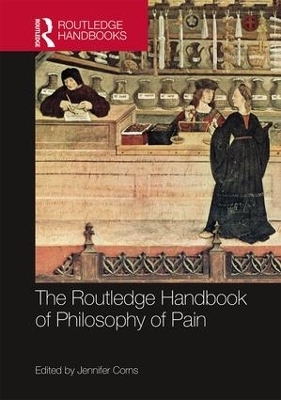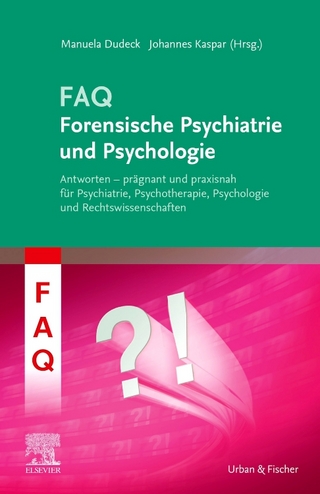
The Routledge Handbook of Philosophy of Pain
Routledge (Verlag)
9781138823181 (ISBN)
The phenomenon of pain presents problems and puzzles for philosophers who want to understand its nature. Though pain might seem simple, there has been disagreement since Aristotle about whether pain is an emotion, sensation, perception, or disturbed state of the body. Despite advances in psychology, neuroscience, and medicine, pain is still poorly understood and multiple theories of pain abound.
The Routledge Handbook of Philosophy of Pain is an outstanding reference source to the key topics, problems, and debates in this exciting and interdisciplinary subject and is the first collection of its kind. Comprising over thirty chapters by a team of international contributors the Handbook is divided into nine clear parts:
Modeling pain in philosophy
Modeling pain in neuroscience
Modeling pain in psychology
Pain in philosophy of mind
Pain in epistemology
Pain in philosophy of religion
Pain in ethics
Pain in medicine
Pain in law
As well as fundamental topics in the philosophy of pain such as the nature, role, and value of pain, many other important topics are covered including the neurological pathways involved in pain processing; biopsychosocial and cognitive-behavioural models of pain; chronic pain; pain and non-human animals; pain and knowledge; controlled substances for pain; pain and placebo effects; and pain and physician-assisted suicide.
The Routledge Handbook of Philosophy of Pain is essential reading for students and researchers in philosophy of mind, philosophy of psychology and ethics. It will also be very useful to researchers of pain from any field, especially those in psychology, medicine, and health studies.
Jennifer Corns is Lecturer in Philosophy at the University of Glasgow, UK. Her published research focuses on pain and affect. She aims to use philosophical tools and evaluate empirical research to make progress on topics that matter within and beyond the academy. She is currently revising a monograph, Pain is Not a Natural Kind.
Introduction. Pain research: where we’ve been, where we’re going, and why it matters Section 1: The Nature of Pain: what is Pain? Part 1: Modeling Pain in Philosophy 1. A brief and potted overview on the philosophical theories of pain 2. Pain and representation 3. An evaluative account of pain’s unpleasantness 4. Imperativism 5. Fault lines in familiar concepts of pain Part 2: Modeling Pain in Neuroscience 6. Advances in the neuroscience of pain 7. Neuromatrix theory of pain 8. A neurobiological view of pain as a homeostatic emotion 9. A view of pain based on sensations, meanings, and emotions 10. Pathophysiological mechanisms of chronic pain Part 3: Modeling Pain in Psychology 11. Psychological models of pain 12. Bisopsychosocial models of pain Thomas Hadjistavropoulos 13. Psychogenic pain: old and new 14. Pain, voluntary action, and the sense of agency Section 2: Theoretical implications: why does pain matter, theoretically? Part 4: Pain in philosophy of mind 15. The lives of others: pain in non-human animals 16. Robot Pain 17. Pain and consciousness 18. Pain: perception or introspection?Part 5: Pain in epistemology 19. Pain and rationality 20. Pain and incorrigibility 21. Can I see your pain? An evaluative model of pain perception 22. Pain and cognitive penetrability Hilla JacobsonPart 6: Pain in philosophy of religion 23. Sacred pain: the use of self-inflicted pain in religion 24. The role of pain and buddhism: the conquest of suffering 25. Pain and the divine 26. The problem of pain in the philosophy of religion Section 3: Practical implications: why does pain matter, practically? Part 7: Pain in ethics 27. Bad by nature: an axiological theory of pain 28. Pain and torture 29. Pain and education 30. Pain and justified evaluative belief Part 8: Pain in medicine 31. An introduction to the IASP’s definition of pain 32. Pain and ‘placebo’ analgesia 33. Pain management Part 9: Pain in Law 34. Pain and the law 35. Pain and controlled pain relieving substances 36. Fetal pain and the law: abortion laws and their relationship to ideas about pain 37. Pain, mental suffering, and physician-assisted death Index
| Erscheinungsdatum | 24.05.2016 |
|---|---|
| Reihe/Serie | Routledge Handbooks in Philosophy |
| Zusatzinfo | 4 Tables, black and white |
| Verlagsort | London |
| Sprache | englisch |
| Maße | 174 x 246 mm |
| Gewicht | 1340 g |
| Themenwelt | Sachbuch/Ratgeber ► Gesundheit / Leben / Psychologie |
| Geisteswissenschaften ► Philosophie ► Allgemeines / Lexika | |
| Geisteswissenschaften ► Philosophie ► Erkenntnistheorie / Wissenschaftstheorie | |
| Geisteswissenschaften ► Philosophie ► Ethik | |
| Geisteswissenschaften ► Religion / Theologie | |
| Medizin / Pharmazie ► Medizinische Fachgebiete ► Psychiatrie / Psychotherapie | |
| Studium ► 1. Studienabschnitt (Vorklinik) ► Med. Psychologie / Soziologie | |
| Studium ► Querschnittsbereiche ► Geschichte / Ethik der Medizin | |
| ISBN-13 | 9781138823181 / 9781138823181 |
| Zustand | Neuware |
| Informationen gemäß Produktsicherheitsverordnung (GPSR) | |
| Haben Sie eine Frage zum Produkt? |
aus dem Bereich


